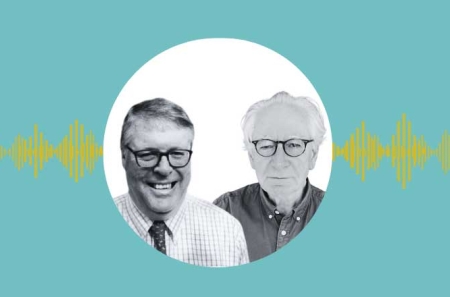
'Abject and True Remorse': Loyalism and the Politics of Regret in Northern Ireland
26 April 2024Kieran McEvoy
This article is part of a special section of ISIA, edited by Brice Dicksen. See the other papers in the section
ABSTRACT
This article examines the politics of apologies from loyalist armed groups. Using the CLMC 1994 ceasefire statement as a case study, it is based on original survey data; semi-structured interviews with ex-combatants, victims and others; and archival research. It also draws on the academic literature on apologies, transitional justice, political violence, historical institutionalism, literary criticism and the sociology of legitimacy and identity. It examines the broader role of apologies in post-conflict Northern Ireland before focusing on the political and historical context of the CLMC statement and its role as a palimpsest for subsequent loyalist engagement on legacy issues. It suggests that a close reading of the original statement and its afterlife reveals important apology-related themes concerning timing, presentation, leadership and truth recovery. Finally, the paper examines the vexed issues of collusion and criminality. It concludes that loyalists can exercise further agency and leadership through apologies before exiting the political stage.
INTRODUCTION
In what is sometimes referred to as 'the politics of regret',(1) saying 'sorry' publicly has become a key feature of efforts by political leaders, senior clerics, corporate CEOs and other leaders to address past abuses.(2) Past-facing apologies have also featured prominently in post-authoritarian or post-conflict societies—becoming an important element of broader transitional justice toolkit processes. (3) Perhaps precisely because they are usually considered an 'add-on' in terms of dealing with the past, the issue of apologies has received much less sustained analysis regarding post-conflict Northern Ireland than other aspects of transitional justice in the region.(4) Instead, much of the academic and policy work on dealing with the past in Northern Ireland has focused on policing and investigations, truth recovery, reconciliation, victimhood, and particular high-profile issues such as the disappeared or more recently the drive by the current UK government to implement some form of amnesty and hamper effective investigations.(5) Aware of this lacuna, I have been working with colleagues for a number of years to better understand the role of apologies in addressing the past in Northern Ireland. The discussion below is therefore drawn from a range of sources over the past decade.
By way of background, from 2013 to 2015 I worked with colleagues at the Belfast-based NGO Healing Through Remembering (HTR), who established a baseline database on apologies drawn from newspaper sources in Northern Ireland. Drawn primarily from Northern Ireland newspapers, the latter included 93 statements of acknowledgement and/or apology on conflict-related events up to 2014. From 2016 to 2021 I led an interdisciplinary team based at Queen's University Belfast on an ESRC-funded project that explored the use of apologies in addressing past harms in Northern Ireland and the Republic of Ireland across three sites of harm—the conflict, institutional abuse and the banking crisis.(6) This project involved conducting 1,007 computer-assisted interviews with a stratified sample of the general population in Northern Ireland and the Republic of Ireland, 24 focus groups with a stratified sample of the general population and select individuals who had been directly affected by the harms under analysis.(7) We also conducted over 70 in-depth semi-structured interviews with perpetrators, victims/survivors, policy makers and other relevant stakeholders across Northern Ireland and Ireland between 2017 and 2021.(8) In addition, a much more extensive database of conflict-related apologies/statements of acknowledgement (416) was compiled.(9) An extensive interdisciplinary literature review on apologies was also commissioned. Ethical approval for the research was granted by the Law School Research Ethics Committee at Queen's University Belfast.
1. Jeffrey Olick, The politics of regret (New York, 2007).
2. See e.g. Anne-Marie McAlinden, 'Acts of contrition: forgiveness and intergroup apologies for historical institutional abuses', International Review of Victimology (2023), https://doi.org/10.1177/02697580231162383; Daryl Koehn, 'Why saying "I'm sorry" isn't good enough: the ethics of corporate apologies', Business Ethics Quarterly 23 (2) (2013), 239–68.
3. Kieran McEvoy and Anna Bryson, 'Apologies in transitional justice', in Cheryl Lawther and Luke Moffett (eds), Research handbook on transitional justice (Cheltenham, 2023), 306–24.
4. For notable exceptions see Stephen Hopkins, 'The politics of apology and the prospects for "post-conflict" reconciliation: the case of the provisional Irish Republican Movement', International Journal of Transitional Justice 14 (3) (2020), 524–43; Patricia Lundy and Bill Rolston, 'Redress for past harms? Official apologies in Northern Ireland', International Journal of Human Rights 20 (1) (2016), 104–22.
5. For an overview see Anna Bryson and Kieran McEvoy, 'Human rights activism and transitional justice advocacy in Northern Ireland', International Journal of Transitional Justice (2023), ijad022, https://doi.org/10.1093/ijtj/ijad022.
6. ESRC grant reference ES/N010825/1.
7. The locations were Dublin (3), Belfast (3), Galway City (2), Derry City (2), Newry (2), Cork City, West Cork and Fermanagh.
8. The focus groups and interviews were recorded, transcribed and then coded in NVivo, using a fusion of inductive and deductive approaches. See further Jennifer Fereday and Eimear Muir-Cochrane, 'Demonstrating rigor using thematic analysis: a hybrid approach of inductive and deductive coding and theme development', International Journal of Qualitative Methods 5 (2006), 80–92. In light of potential risks to participants and researchers, a detailed ethical protocol was developed to assist in the focus groups and interviews, including access to support services.
9. The archive was compiled by Dr Kevin Hearty, then a post-doctoral research fellow at the Mitchell Institute, Queen's University Belfast. It included mainstream print outlets such as Belfast Telegraph, Irish News, News Letter, Irish Times and local newspapers such as Andersonstown News, Derry Journal, Newry Reporter as well as 'in-house' publications, e.g. An Phoblacht/Republican News [IRA], Combat/Purple Standard [UVF], The Loyalist [UDA].



